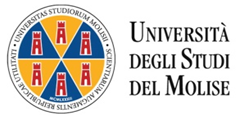La call nasce dalla collaborazione tra la Water challenges for a changing world Joint Programming Initiative (WATER JPI) e la Joint Programming Initiative Agriculture, Food security and Climate Change (JPI FACCE).
Il bando prevede un solo topic – Sustainable management of water resources in agriculture, forestry and freshwater aquaculture sectors – e tratta tre sfide in particolare:
- Increasing the efficiency and resilience of water uses
-
Innovative water use systems and practices, including precision irrigation technologies (e.g. mode ls, sensors, ICT);
-
Water-efficient and/or drought-tolerant and/or salinity-tolerant crops and forestry species/varieties, including ananalysis of the effects of such crops and species on the environment;
-
Water reuse and water recycling technologies in the agriculture and freshwater aquaculture sectors;
-
Optimisation of the Water–Energy nexus in these sectors (e.g. improving energy efficiency).
-
Development of water-conserving agriculture and forestry practices as a way to improve the management of water and to improve soil properties related to water;
-
Increasing the resilience of agriculture and forestry systems and landscape manage ment in a context of highly variable water availability due to climate trends, climate variability and extreme events (floods and droughts);
-
Implementation of innovative technologies for the monitoring of surface and groundwater bodies for effective integrated water management (including water abstraction) in agriculture, forestry and freshwater aquaculture sectors.
-
- Monitoring and reducing soil and water pollution
-
Optimising fertiliser application to reduce over fertilisation to better accommodate crop requirements while avoiding nitrogen and phosphorus losses to surface water and groundwater.
-
Assessment and development of monitoring schemes and indicators, for agricultural catchments to identify, quantify and minimise pollution sources and to reduce impacts on water quality, caused by agrochemicals,mineral fertilizers, crops residues, manure and digestates.
-
Modelling and assessing the nitrate and phosphorus loads from agriculture, forestry and freshwater aquaculture sectors to avoid risks of eutrophication of rivers and lakes, and propose management approaches for reducing impacts on ecosystem biodiversity and economic sectors.
-
Understanding and decreasing the combined environmental risks from agriculture, forestry and freshwater aquaculture to human health (environmental exposure fromwater uses and food).
-
- Integrating social and economic dimensions into the sustainable management and governance of water resources
- In the context of increased risks (droughts and floods) and competition for water uses, development of new approaches and models for integrated management and governance of land, soil and water targeting the optimum use of resources (water quantity and quality issues at catchment or river basin scales).
- Set-up of water-valuing schemes based upon the establishment of new criteria for water valuation in agriculture, forestry or freshwater aquaculture and the estimation of associated costs with a sustainability perspective including social, economic and ecological pillars.
- Developing participatory approaches and assessing barriers (social, cultural, psychological and economic barriers) at catchment level for better implementation of policies and uptake of existing and breakthrough knowledge (e.g. ICT technologies).
Tra i requisiti generali previsti, le proposte dovranno pervenire da partnership composte da almeno tre soggeti eligibili provenienti da almeno tre Stati partecipanti. Sono considerati soggetti elibili le imprese, le università e gli istituti di ricerca.
La call prevede inoltre una serie di criteri nazionali. Per quanto riguarda l’Italia, il MIUR è il soggetto finanziatore e regolatore. Maggiori informazioni sulle regole nazionali.
Budget: complessivamente 26 milioni di euro.
Scadenza per la presentazione delle pre-proposals: 19 aprile 2016
Scadenza per la presentazione del full proposal: 15 settembre 2016
